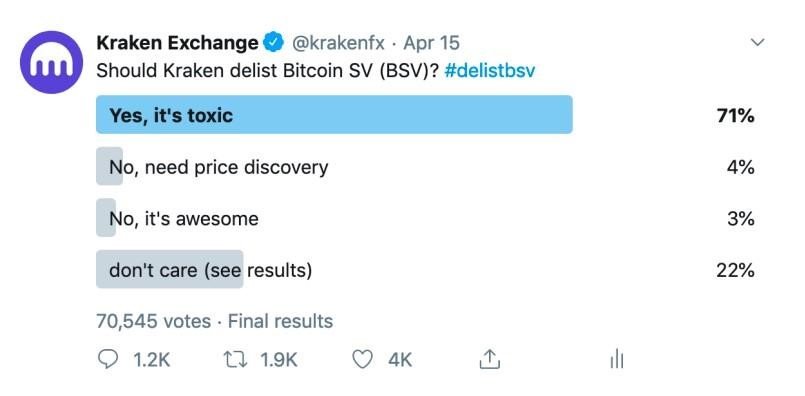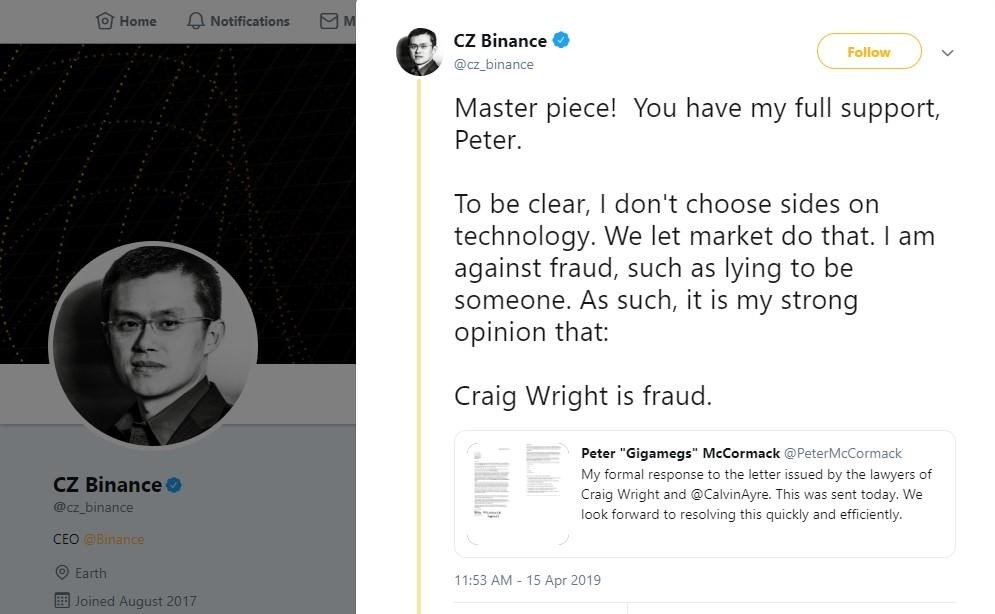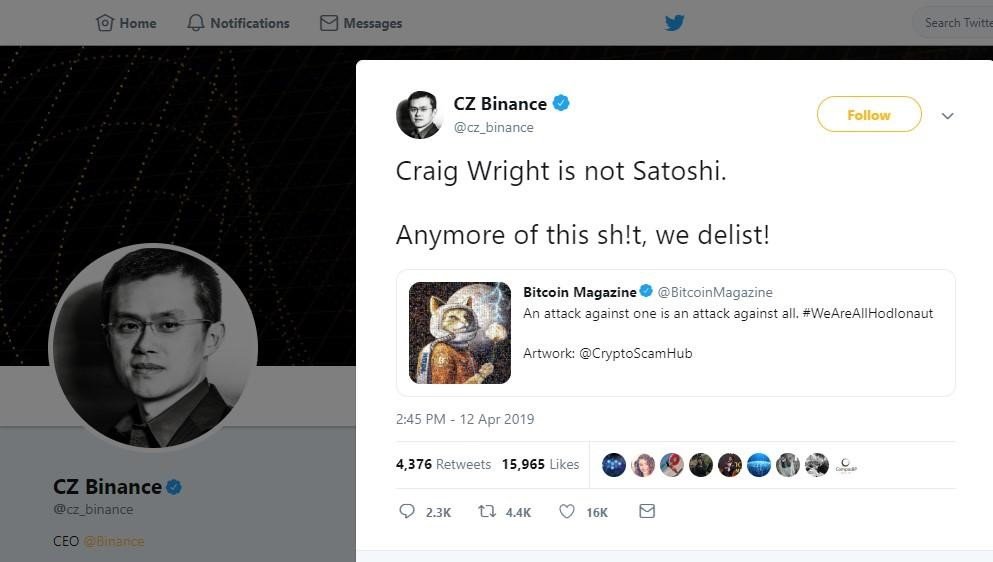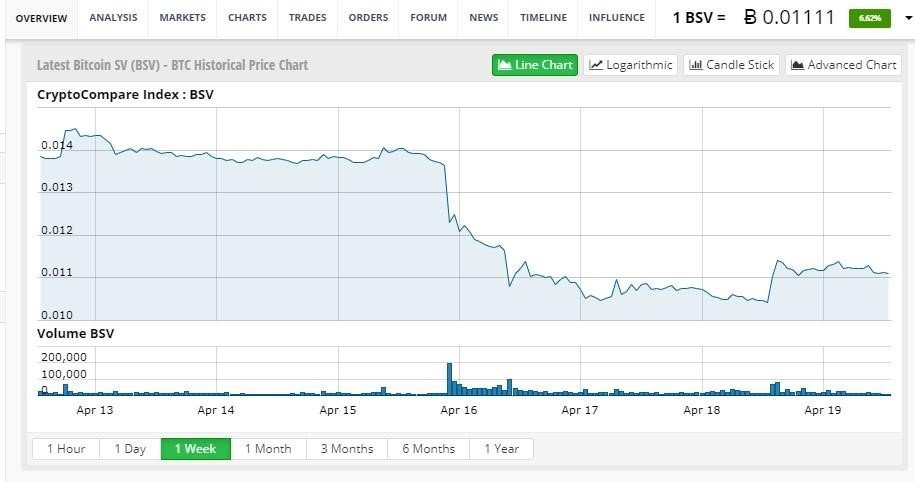Is Delisting BSV Personal Or Good Business Ethics?

Recently, the crypto community almost had a meltdown on Twitter, with Craig WRIGHT and his BSV (Bitcoin Satoshi Vision) at the center of it. Issue was his continued claim of him being Satoshi Nakamoto. To put it mildly, well, that got a lot of people fired up!
The discussion then quickly centred around Craig’s legal notice to Peter McCORMACK, demanding a public apology and an admittance that he (Craig) is indeed the real Satoshi. For your information, Peter is a member of the Hodlonaut community that was recently formed to prove that Craig is a fraud and is not the actual Satoshi Nakamoto. Additionally, Craig threatened legal action for defamation, and, still not relenting, announced $5,000 worth of BSV tokens for anyone who can reveal the identity of the Twitter handle @hodlonaut. Rather than getting support, Twitter rallied together and formed a substantial community against Wright, with popular hashtags like #CraigIsAFraud and #WeAreAllHodlonauts.
Long story short, Peter refuses to apologize and prefers rather to go to court. This was picked up by Changpeng ZHAO, CEO of Binance, who showed nothing but full support for Peter. He upped the ante by stating:
“Master piece! You have my full support, Peter. To be clear, I don't choose sides on technology. We let market do that. I am against fraud, such as lying to be someone. As such, it is my strong opinion that: Craig Wright is fraud”.

When Craig Wright issued legal action against @Hodlonaut, CZ immediately fired back:
“Craig Wright is not Satoshi.
Anymore of this sh!t, we delist!”

That tweet did not go unnoticed, and combined with the ultimate announcement of Binance to delist BSV altogether, this needless to say had a negative effect on BSV’s valuation; from around $90 before when the controversy started, to bottom around $55 and now trying to grasp the $60 mark again.

But, there is an interesting question to be asked, and as the “blockchain governance guy” I have to ask it. Is this delisting a legitimate business decision? For the sake of this article I am not taking sides in the dispute (although I do have very strong opinions about it) but I am interested to learn how legitimate this decision by for instance Binance is. Why? Well, simply because transparency is our middle name, or should be.
Reason I am particularly interested in this issue is that I am a Board member in eucx.io (European Cryptocurrency Exchange) and as such responsible for governance. EUCX plans to be the first regulated exchange, with a Central Bank licence. Needless to say we are putting governance center stage. As we are in the early stages and are not operational yet, I can afford to take the “backseat driver, Monday morning quarterback approach”, so apologise for being perceived as grandstanding.
As a neutral bystander one could think or argue that CZ is simply emotional involved, and finds himself all of a sudden, by the lack of a better expression, in a pissing contest. A confrontation he — better said Binance — can afford by the way. Actually, I would not be surprised it would even rub off positively, by showing the community you draw a line, take a stand and are willing to loose business over it. But, it can also be that there are personal reasons at play. Feeling offended that someone in your view undeservingly takes credit for something is very natural, but can also trigger an irrational response, a response that is not necessarily warranted for that specific situation.
Of course other exchanges are now also considering delisting BSV. Kraken took a very novel approach; by asking the community at large, not their customers however. Although you can argue that for certain principles there is no room for consensus decision making, it is a relative “binary” enough question; you either agree with delisting, or you don’t. The poll — some called it inciting mob rule on Twitter — is finished now, and Kraken has also chosen to delist BSV, citing “completely antithetical behavior”. They continue stating “The threats made last week to individual members of the community were the last straw. This aggression will not stand.” One can and must applaud that stand. Interestingly 71% of the participants labelled BSV as toxic. It would have been interesting to see what they would have done if 50.01 percent was in favor of delisting..... Brexit anyone?

Taking a liberal standpoint, one could argue that crypto stands for freedom, and ultimately it is us the community, the market who decides to accept a company, a technology, a token, and not the exchange. Decentralization is p2p transactions; if someone wants to buy, and a seller wants to sell, why should an exchange intervene with that other than facilitating the transaction? If the market would reject that coin, well, that would be pretty much the end of it, and would have much bigger impact than delisting. Interestingly, one could ask the question if DJ and Nasdaq would even contemplate to delist companies they feel acted immoral? Well, that could I am sure result in a massive wipe out of listings. What about the “bail-out banks”, Enron, gun manufacturers, tobacco industry, Monsanto to name a few. Where to start, and, more important, what criteria to use to label as immoral? I think we all know that that is not going to happen. Not necessarily for ethical reasons, but for commercial ones.
So, what can we learn from all this? Well, I would have preferred to see more transparency from Binance; current motivation is still vague to me. Simply said, we should not get into situations like Apple and Facebook who are able to reject apps without any comments.
**************
About the author:
Drs Hans Koning is Governance Visionary, founder and CEO of Vicarium, the authority when people talk about “the Blockchain and crypto space”, in the fields of Law, Gouvernance and Business Consulting. Vicarium understands and appreciates the value of trinity business, gouvernance and legality, and feels it is important to not simply comply, but moreover take a pilot role.
Image courtesy of A Better today Media